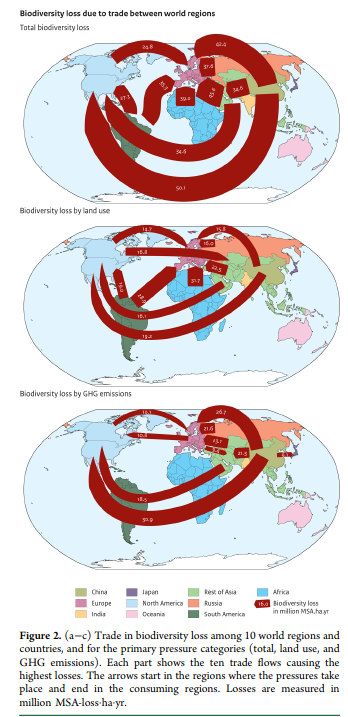
"Our results showed that (i) the #biodiversity loss per citizen shows large variations among countries, with higher values when per-capita income increases; (ii) the share of biodiversity losses due to GHG emissions in the ...
pubs.acs.org/doi/10.1021/ac…
pubs.acs.org/doi/10.1021/ac…
... #biodiversity #footprint increases with income; (iii) food consumption is the most important driver of biodiversity loss in most of the countries and regions, with a global average of 40%; ...
... (iv) more than 50% of the #biodiversity loss associated with consumption in developed economies occurs outside their territorial boundaries; and (v) the biodiversity footprint per dollar consumed is lower for wealthier countries.
"All nonfood consumption categories showed lower shares in biodiversity losses due to less dependency on land use. In all countries®ions,#biodiversity loss caused by consumption of services was relatively low, despite a high share of services in expenditures in some countries" 

"The outcomes of our analysis are a first step by informing policy makers on countries, industries, and consumption categories with the highest impacts on #biodiversity. Such a prioritization helps policy makers in defining options for protecting biodiversity."
• • •
Missing some Tweet in this thread? You can try to
force a refresh








